How far to plant raspberries?

Raspberries are a favorite garden shrub. It not only bears fruit with tasty and healthy berries, but is also completely unpretentious in care. However, even she has some planting conditions that are worth observing so that you can later harvest a bountiful and healthy crop.
This will also help the competent arrangement of shrubs, not only in relation to the buildings on the site, but also in relation to each other. This is especially true for gardeners planning to plant an abundant area with this berry.
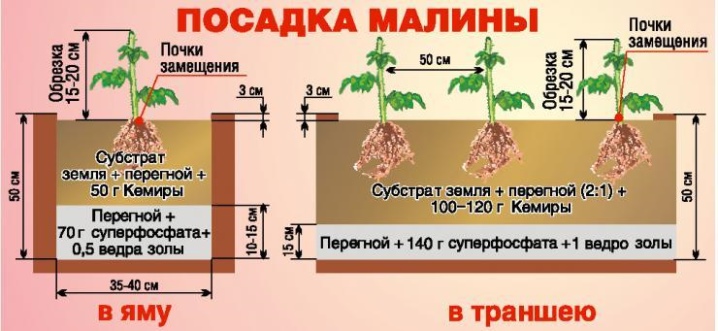
Distance between bushes and rows
First of all, the distance between the bushes depends on the type of raspberry that you plan to plant. If it is bushy, then it should be borne in mind that when growing, such seedlings can have up to 10 large shoots, and the width of the shrub sometimes reaches 50 cm... If you plant them too close to each other, the plants will not have enough light and air, which means they will not be able to fully bear fruit.
For this type of bushes, the landing will be correct every meter, and the distance between the rows is at least one and a half meters. This way, each shrub will have enough room to grow, and subsequently picking berries will not cause problems for the gardener due to the sufficient distance.
The usual garden raspberry, which grows in most people in the country, needs much less space.

Due to the fact that the entire bush, in fact, is a single shoot with small branching shoots, it takes up less area. Such bushes can be planted every step, or at a distance of 30-40 cm from each other. You can leave a meter of free space between the rows, but for the comfort of both plants and those who will subsequently harvest, it is still recommended to place trenches for future planting at a distance of 1.5-2 meters from each other. This is convenient not only for picking berries, but also for caring for shrubs.
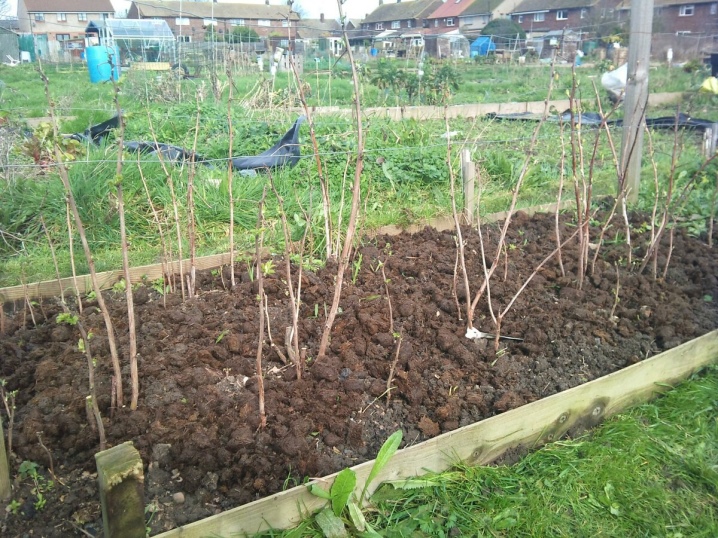
How many meters should there be to buildings?
During planting, it is also worth considering the location of various buildings on the site, including fences, and sheds, and even temporary hinged tents.
The fact is that raspberry is a plant, although unpretentious, but still does not like the scorching July heat or deep shadow. If you do not take care of this in time, the leaves can burn from the scorching midday sun, and subsequently the berries.
And also it is worth considering the winds. Often too frequent and abrupt their gusts can adversely affect the flowering of plants, and subsequently their ability to bear fruit.
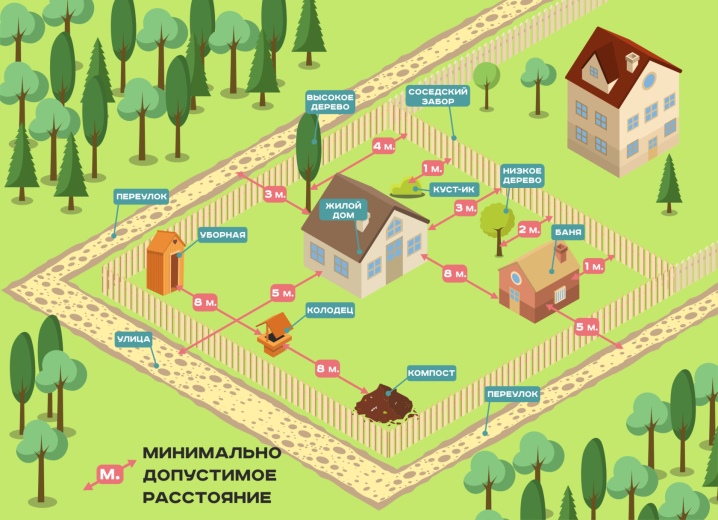
It is best to choose the southern or southwestern part of the site at a distance of at least 2-3 meters from the nearest buildings and about 1 meter from the fence. Thus, the fence, if necessary, will be able to protect the berries from air currents, retain more snow in winter, and will allow the soil to warm up faster in spring.
In addition, other large shrubs such as, for example, currants and gooseberries, as well as fruit trees, have an extremely adverse effect on the growth of raspberries.
Mainly due to the fact that their roots take most of the nutrients from the soil, which negatively affects not only raspberries, but also their potential neighbors. Therefore, landing is still worth making at a distance of at least 2 meters to the nearest "competitors".
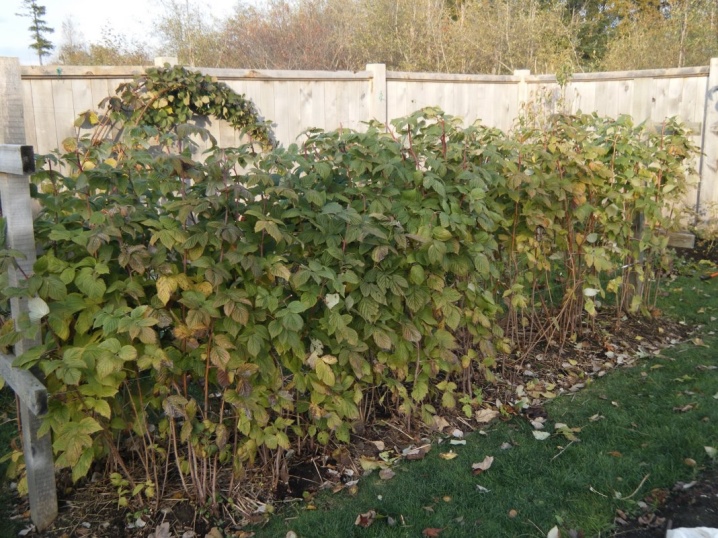
Landing patterns taking into account the region
But all these tips are useless if you do not take into account the region in which the culture is planned to be planted.
For example, in hot regions, such as, for example, the Krasnodar Territory, it is worth considering the main features of the climate - dry summers and a small amount of snow in winter. In such conditions, you can start planting bushes even in the fall. If the lack of a sufficient amount of water can be compensated for by timely watering, then thickening of the plantings will help get rid of the excessive abundance of sunlight. The distance between bushes can be reduced by 20-30%. This will not only help create a natural shade for the shrubs, but will also protect the soil from overheating, and will also help keep more snow in the winter.
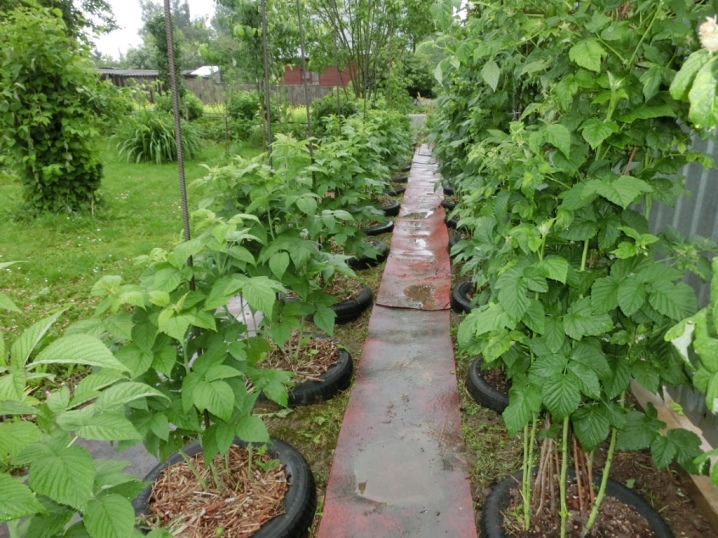
In the middle latitudes, for example, in the Moscow region, there are optimal conditions for growing berry crops. In summer, plants have enough sun and natural irrigation in the form of rain, and in winter there is a sufficient amount of snow.
But in Siberia and the Urals, raspberries expect frosty winters and strong gusty winds. In such regions, it is recommended to place seedlings separately from each other at a distance of at least a meter, so that the trunk is already strong enough by winter. In addition, separately located shrubs are easier to bend to the ground before frost.
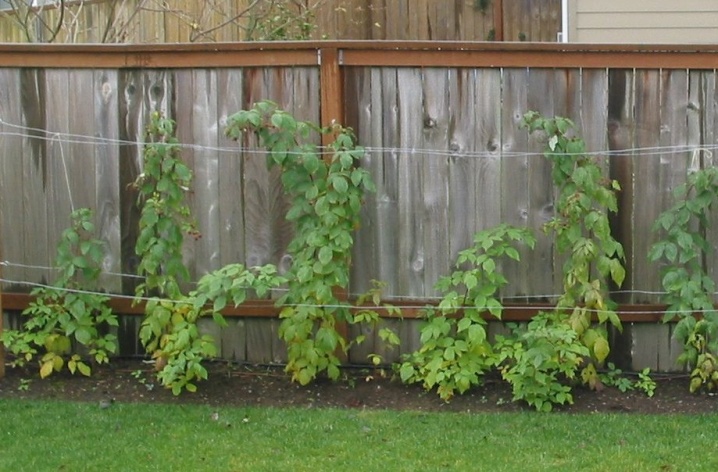
In addition to all of the above, there are many more ways to plant garden raspberries. In many regions, it gets along well not only in the open field, but also in greenhouse conditions. And there are also various special varieties that can even be grown in pots. In this case, it should be borne in mind that it is preferable to keep the pots with raspberries outdoors - on the street or on the balcony, and if the weather conditions worsen, they should be brought into the house or greenhouse. Plants planted in this way should in no case come into contact with leaves, as this interferes with their further growth and development.
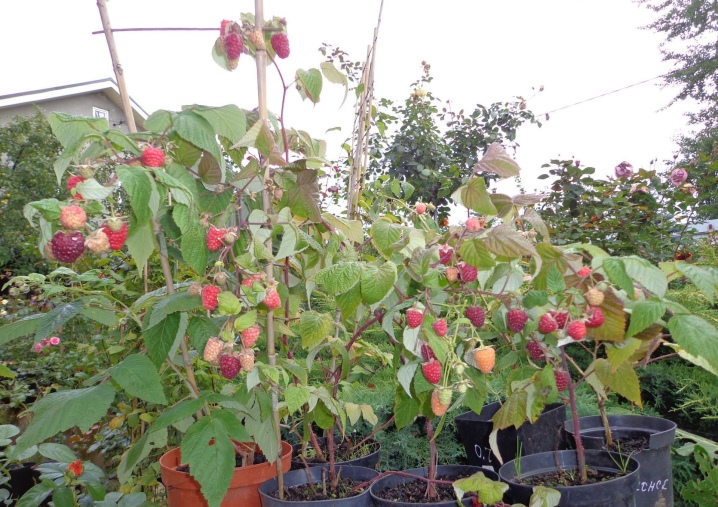













The comment was sent successfully.